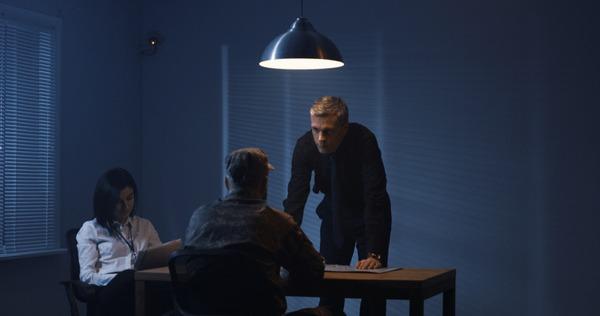
If you ever find yourself sitting in an interrogation room, it’s natural to feel nervous and unsure about what to say. Many people unintentionally hurt their cases by saying too much or by saying the wrong things. This is why you should always contact a criminal defense lawyer before speaking to the police.
Here are some important guidelines on what you should and shouldn’t say during an interrogation.
What You Should Say
1. Ask for Your Lawyer
The first thing you should do is clearly state, “I want to speak to my attorney.” Once you say this, officers are required to stop questioning you until your lawyer is present. This protects your rights and prevents you from saying anything that could be misinterpreted.
2. Provide Basic Identification
You should provide your name, address, and date of birth if asked. This is standard and refusing to do so can lead to additional charges. However, beyond this basic information, remain silent until your lawyer arrives.
3. Say “I am going to remain silent until my lawyer is here.”
This statement is powerful. It shows you are aware of your rights. Silence cannot be used against you in court, but statements you make can. Being polite while asserting your rights is the safest approach.
What You Shouldn’t Say
1. Don’t Try to Explain
Many people think if they explain themselves, officers will understand and let them go. In reality, police are trained to use your words against you. Even innocent explanations can create contradictions or confusion later in court.
2. Don’t Lie
Lying to law enforcement is a crime in many situations. If you lie, it can destroy your credibility. It’s better to say nothing at all than to tell a false story.
3. Don’t Volunteer Information
If the police don’t ask something, don’t provide it. Anything you say can open the door for more questioning or deeper investigation. Stay silent unless your lawyer advises you to answer.
Why Silence is So Important
Remaining silent isn’t an admission of guilt. It’s a constitutional right under the Fifth Amendment. The police may try to act like they’re on your side, but their job is to collect evidence. Anything you say can be twisted, taken out of context, or used to build a case against you.
What If You’re Innocent?
Many innocent people think they should cooperate fully to clear things up. Unfortunately, this often backfires. Stress, fear, or confusion can cause you to misspeak. These small errors can be interpreted as inconsistencies or lies.
Having a lawyer ensures that your statements are made strategically and safely. Your attorney can speak on your behalf or prepare you to answer questions in a way that won’t harm your case.
What Police Might Say to Get You Talking
Officers may say things like:
- “We just want to hear your side.”
- “If you don’t talk, we can’t help you.”
- “Your friend already told us everything.”
These are interrogation tactics. Their goal is to get you to speak without a lawyer. Politely repeat that you want to remain silent until your attorney arrives.
The Bottom Line
The interrogation room isn’t where you explain yourself. It’s where the police try to gather evidence. Your best defense is to say as little as possible, assert your right to remain silent, and request your lawyer immediately.
Remember, what you say can only hurt you – it rarely helps without legal guidance. If you ever find yourself in such a situation, don’t hesitate to contact a criminal defense lawyer to protect your rights, your record, and your future.









